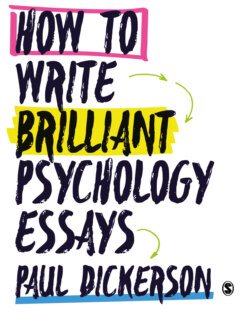Читать книгу How to Write Brilliant Psychology Essays - Paul Dickerson - Страница 15
На сайте Литреса книга снята с продажи.
Confusion is a friend not an imposter
ОглавлениеIt is easy to hate confusion – perhaps especially now when Siri, Google and Alexa instantly answer any questions that flit through our minds the moment we voice them. But wait, confusion is good – or at least constructive confusion is good. Confusion is constructive if we articulate it and use it to inform our thinking, reading and writing. Look at these three confused reactions in relation to essay titles and take a moment to note that they are actually helpful:
1 Essay title: ‘Critically evaluate Kelley’s Covariation Model of Causal Attribution.’Constructive confusion: ‘I don’t understand Kelley’s distinction between distinctiveness and consistency.’Why it is helpful: Most people mix these up – identifying the uncertainty is the first step to identifying the subtle difference between these two aspects of Kelley’s model. This will guide some of your reading and thinking and will mean that your essay has a clarity and understanding that would not be there if you had not identified this confusion.
2 Essay title: Evaluate the strengths and weaknesses of longitudinal methods of investigation in developmental psychology research.Constructive confusion: ‘How can I critique longitudinal research when I am only aware of its strengths?’Why it is helpful: This demonstrates an awareness of the need to consider the research from different perspectives. This constructive confusion will inform the reading and note-taking undertaken (see Chapter 2 for more on this) and lead to a richer, more complete and more genuinely evaluative essay.
3 Essay title: Critically evaluate the Social Identity Theory perspective on why people engage in acts of aggression.Constructive confusion: ‘How can I write an essay on aggression when psychologists do not have one simple definition of what it actually is?’Why it is helpful: You have identified a really great critical point – that it is possible to question how we actually define our terms in psychology, not least how we define aggression (what do empirical studies treat as aggression), and what real-world scenarios (two men fighting, gang fights, drone warfare, riots) are we trying to explain. If this is confusion, try to get more of it. This sort of thinking can really supercharge your essays, informing some of your literature searches: ‘How has aggression been defined?’, ‘Critiquing definitions of aggression’, and providing a way of questioning fundamental assumptions in the specific material that you are evaluating in your essay.
